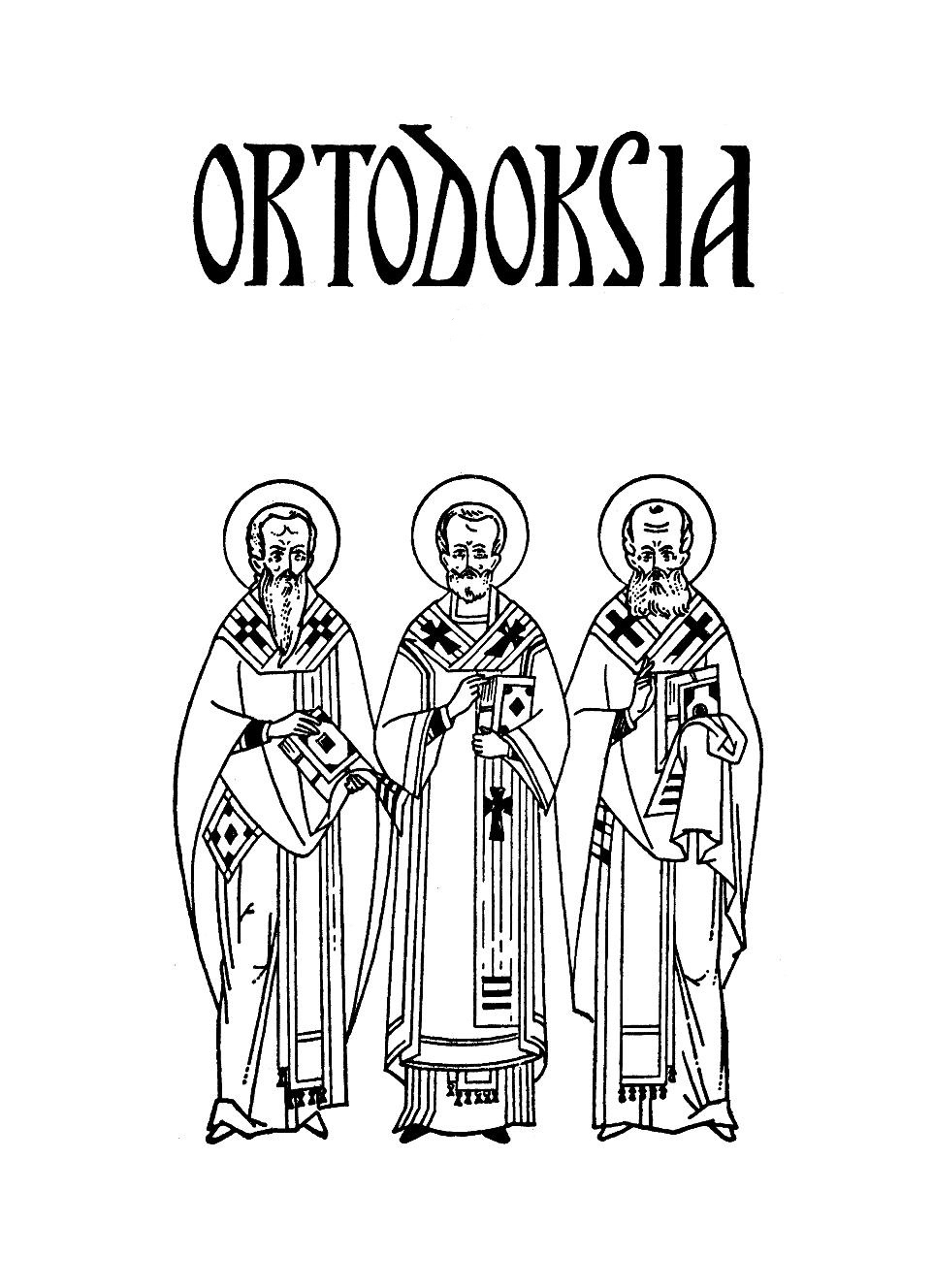The War in Ukraine and the Theological Dialogue between the Russian Orthodox Church and the Evangelical Lutheran Church of Finland
DOI:
https://doi.org/10.61560/ortodoksia.136078Keywords:
Ukraine, Theological dialogue, Russian Orthodox Church, Evangelical Lutheran Church of Finland, WarAbstract
This article focuses on the theological dialogue between the Russian Orthodox Church (ROC) and the Evangelical Lutheran Church of Finland (ELCF). It also examines how Ukraine - and the war there - has been discussed and dealt with in the churches' relations. Although the theological dialogue has avoided acute political and church political issues, political events cannot but influence the dialogue as its context. Over the decades, the context of Ukraine and the changes that have taken place in its Orthodox churches have influenced the dialogue. What significance has Ukraine had for this dialogue? How has the Russian war against Ukraine affected the theological dialogue and communication between the churches?
First, I will examine the attempts of the ELCF to continue the dialogue with the ROC in the 2010s. Second, I will look closely at how Ukraine has been considered in the dialogue since the 1990s. Thirdly, I will explore how the Russian war against Ukraine, which began in 2002, has influenced the ELCF's attitude towards the ROC.

References
Gaufman, Elizaveta (2019). Come all ye faithful to the Russian World. Teoksessa Elizabeth Clark & Dmytro Vovk (eds.), Religion during the Russian Ukrainian Conflict. London: Routledge. 54–68. https://doi.org/10.4324/9780429288463-4
Hurskainen, Heta (2013). Ecumenical Social Ethics as the World Changed. Socio-ethical Discussion in the Ecumenical Dialogue between the Russian Orthodox Church and the Evangelical Lutheran Church of Finland 1970-2008. Diss. Itä-Suomen yliopisto. Schriften der Luther-Agricola-Gesellschaft 67. Helsinki: Luther-Agricola Society.
Hurskainen, Heta (2016). Mistä keskustellaan ja millä tavalla? Suomen evankelis-luterilaisen ja Venäjän ortodoksisen kirkon oppineuvottelujen päättyminen ekumeenisen metodin näkökulmasta. Teologinen Aikakauskirja 121:4, 322–336.
Hurskainen, Heta & Laitila, Teuvo (2023). Ukraina on meidän! Kirkot ja politiikka Ukrainan ja Venäjän suhteissa. Gaudeamus: Helsinki.
Karttunen, Tomi (2016). Oikeutetun erilaisuuden rajoja etsimässä: Suomen evankelis-luterilaisen ja Venäjän ortodoksisen kirkon oppineuvottelujen keskeytymisen arviointia. Teologinen Aikakauskirja 121: 4, 306–321.
Korniichuk, Julia (2022). Negotiating the right for external relations: the case of orthodox community in Ukraine. Politikologija religije 16:2, 313–333. https://doi.org/10.54561/prj1602313k
Krawchuk, Andrii (2020). The Orthodox Church of Ukraine on the inert-Orthodox Agenda at Amman: the dynamics of ecclesiastical recognition. Canadian Slavonic Papers 62:3–4, 463–476.
Laitila, Teuvo (2024, tulossa). Fighting for Freedom of Religion, or Human Rights, or Ukrainian Nationalism? Varieties of Verbal Resistance and Ecumenism in Fr. Vasyl Romanyuk’s Appeals to Soviet and Western Powers. Teoksessa Heta Hurskainen & Teuvo Laitila (toim.), Churches in Contact and Collision: Multiple Ways of Ukrainian and Russian Churches. Paderborn: Brill.
Rantsya, Ihor (2021). The Canonical Territory Concept and the Eastern Catholic Churches: Challenges on the Ukrainian Example. Teoksessa Vladimir Latinovic & Anastacia K. Wooden (eds.), Stolen churches or bridges to Orthodoxy? Volume 2: Ecumenical and practical perspectives on the Orthodox and Eastern Catholic dialogue. Cham (Switzerland): Palgrave Macmillan, 201–220. https://doi.org/10.1007/978-3-030-55458-3_12
Reseptio (2008). Reseptio: Kirkon ulkoasiain osaston teologisten asiain tiedotuslehti 1/2008. Helsinki: Kirkkohallitus.
Shlikhta, Natalia (2016). Eastern Christian churches between state and society. An overview of the religious landscape in Ukraine (1989–2014). Kyiv-Mohyla Humanities Journal 3, 123–142. https://doi.org/10.18523/kmhj73945.2016-3.123-142
Stoeckl, Kristina (2014). The Russian Orthodox Church and Human Rights. Abingdon: Routledge. https://doi.org/10.1080/15570274.2016.1145468
Stoeckl, Kristina (2023). Traditional values, family, homeschooling: Russia and the Russian Orthodox Church. International Journal of Constitutional Law 21:1, 224–242. https://doi.org/10.1093/icon/moad026
Stoeckl, Kristina & Uzlaner, Dmitry (2022). The Moralist International: Russia in the Global Culture Wars. Fordham University Press. https://www.jstor.org/stable/j.ctv307fh49.9. Katsottu 25.8.2023. https://doi.org/10.2307/j.ctv307fh49.9
Suslov, Mikhail (2014). ’Holy Rus’: The geopolitical imagination in the contemporary Russian Orthodox Church. Russian Politics & Law 52:3, 67–86. https://doi.org/10.2753/RUP1061-1940520303
Suslov, Mikhail (2016). The Russian Orthodox Church and the crisis in Ukraine. Teoksessa Andrii Krawchuk & Thomas Bremer (toim.), Churches in the Ukrainian Crisis. Palgrave Macmillan, 133–162. https://doi.org/10.1007/978-3-319-34144-6_7
Tuomi, Marita (2022). Rauhaa ja politiikkaa: Suomen evankelis-luterilaisen kirkon ja Venäjän ortodoksisen kirkon käsitykset rauhasta kirkkojen oppineuvotteluissa 1970–1986 ja 1995. Diss. Itä-Suomen yliopisto. Dissertations in Education, Humanities, and Theology 191. Joensuu: University of Eastern Finland. http://urn.fi/URN:ISBN:978-952-61-4700-0. Katsottu 23.8.2023.
Turunen, Maija (2006). Ortodoksinen kirkko Venäjällä. Idäntutkimus 1/2006. 48–61.
Wanner, Catherine (2022). Everyday religiosity and the politics of belonging in Ukraine. Ithaca: Cornell University Press. https://doi.org/10.1515/9781501764967
Wanner, Catherine & Yelensky, Viktor (2019). Religion and the cultural geography of Ukraine. Teoksessa Ulrich Schmid & Oksana Myshlovska (eds.), Regionalism without regions. Reconceptualizing Ukraine’s heterogenity. Budapest: Central European University Press, 247–296. https://doi.org/10.1515/9789633863114-010
Downloads
Published
Issue
Section
License
Copyright (c) 2023 Heta Hurskainen

This work is licensed under a Creative Commons Attribution 4.0 International License.


